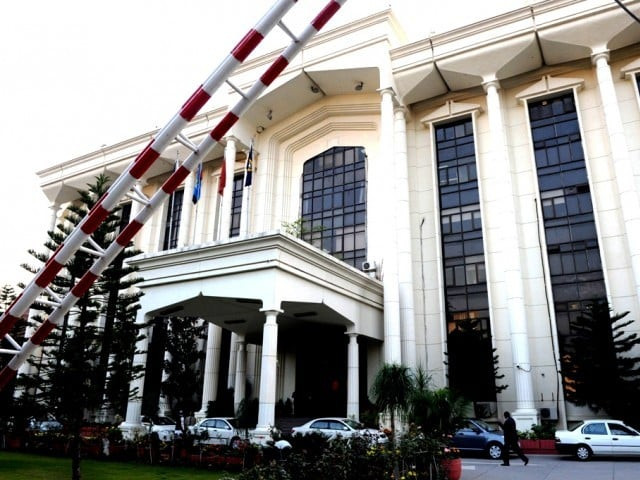Govt trying to give top court power to FBR
Amendment to Section 111 of the Income Tax Ordinance proposed in Finance Bill

The federal government is attempting to give the powers of the Supreme Court to the Federal Board of Revenue (FBR) through the Finance Bill, The Express Tribune learnt on Thursday.
Sources said the FBR had proposed an amendment to the Income Tax Ordinance through the Finance Bill to protect the “illegal actions” of its officers.
FBR Inland Revenue Policy Member Tariq Chaudhry told The Express Tribune that the amendment to Section 111 of the Income Tax Ordinance had been included in the Finance Bill with the ratification of the law division.
“Parliament has the power to overturn court decisions. It also has the power to interpret the law. There are several examples of this,” he added.
Chaudhry further said that many a time it happened that if a court gave a verdict, the parliament could change it.
Read more: Opposition slams move to give unbridled powers to FBR
“If the parliament makes the law then the parliament can interpret it too.”
Legal experts said the proposed amendment to the Income Tax Ordinance through the Finance Bill could be challenged in the Supreme Court or any other court.
They added that only the Supreme Court had the power to set aside the decisions of high courts.
The FBR is seeking to take over this power through the proposed amendment.
It has proposed an amendment to Section 111 of the Income Tax Ordinance 2001 on the concealment of income.
The amendment read that there was no need to issue a separate notice under Section 111 after a notice had already been issued under Section 122(9) of the tax ordinance.
According to sources, the FBR has issued thousands of notices under Section 122 (9) to taxpayers across the country without issuing separate notices under Section 111 on hidden assets and sources of income and expenditure of billions of rupees.
The high courts have handed down dozens of judgments against the FBR in these cases. They have declared proceedings under Section 122(9) as well as Section 111 against taxpayers as illegal.
Only the apex court has the power to set aside high court decisions.
A day earlier, Finance Minister Shaukat Tarin reiterated that power to arrest people on concealment of income would be retained by the government.
Speaking during the meeting of the Senate Standing Committee on Finance, the new economic czar announced that the power to arrest people would be taken back from a grade-19 assistant commissioner but would rest with a committee comprising him, the special assistant to PM on revenue and the Federal Board of Revenue (FBR) chairman.
The minister further said the government wanted to use the powers to arrest only for deterrence and did not intend to arrest more than 20 to 25 people.
“The flurry of tax notices by the FBR has also been stopped,” he added.
Tarin offered the standing committee to propose changes in Clause 203A but he repeatedly stressed the need to retain these powers.
The minister also ruled out the possibility of exiting the IMF programme.



















COMMENTS
Comments are moderated and generally will be posted if they are on-topic and not abusive.
For more information, please see our Comments FAQ